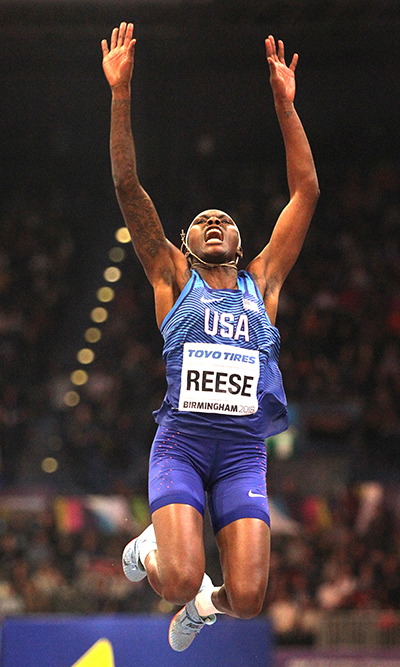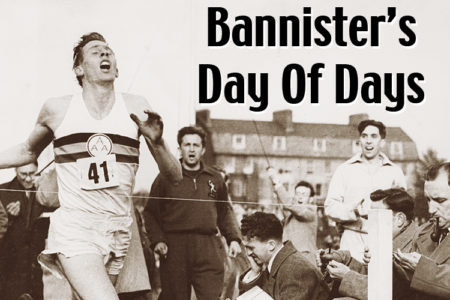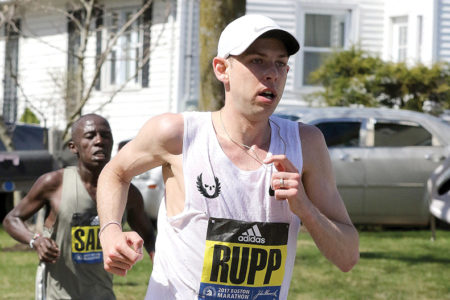HERE’S THIS MONTH’S collection of generally off-track activities that have gone a long way towards shaping the way the sport is headed:

Parliament Harsh On Coe
Seb Coe came under attack in early March by British legislators who accused the IAAF president of misleading a parliamentary inquiry into doping.
In the report, the committee charged with overseeing sports stated that Coe could have acted sooner to start cleaning up the sport.
It also said that he didn’t candidly explain what he knew after he got an e-mail from London Marathon director David Bedford about Liliya Shobukhova facing extortion to have a positive doping test concealed.
“It stretches credibility to believe that he was not aware, at least in general terms, of the main allegations that the ethics commission had been asked to investigate.”
While noting that the IAAF has made progress in the investigation of whistleblower complaints, the report added, “The Shobukhova case raises concerns about whether national or international sports federations are capable of investigating themselves.”
Coe Fires Back
Not surprisingly, Seb Coe responded angrily to criticism from Parliament that his actions to clean up the sport were too little, too late.
“It essentially comes down to whether I’m a reader of e-mails or not. And the truth is I’m not an assiduous reader of e-mails,” the IAAF president wrote in the Evening Standard.
“As for the broader idea that athletics is in tatters as a result of this, that gives little kudos to what we’ve been doing the past two years.
“The IAAF takes the fight against doping very seriously. We’ve made a set of wide-sweeping reforms to revamp the governance of the sport, made 200 changes to its constitution and set up the aforementioned integrity unit. Plus, there is the ongoing suspension of the Russian Member Federation.
“So, frankly I didn’t see athletics in tatters at the World Championships in London last summer nor did I at the World Indoors in Birmingham the past week.”
Ethiopians Back In Property Biz
What’s fueling the competitive success of Ethiopian distance runners? According to Yomif Kejelcha, it’s not drugs (a charge frequently lodged by finger-pointers). It’s land.
The World Indoor double winner says the East African nation’s practice of awarding real estate to champion runners died out after the end of Haile Gebrselassie’s career, but now the Ethiopian government has brought it back.
Kejelcha said that both he and Genzebe Dibaba were promised large plots of land in Addis Ababa if they won gold in Birmingham.
“The government should continue [with this] because what we do as athletes to raise the flag for Ethiopia is not easy,” he told The Independent.
“We receive a lot of dollars for winning competitions but if our country gives us extra motivations we will win again and again and again.”
A Sub-4:00 Before Bannister?
With Roger Bannister’s passing came the revival of an old story, that a paint factory worker had beaten him to a sub-4:00 mile by a month.
According to the tale, as remembered in The Star, Ken Wood ran a 3:59.2 in a training session at Sheffield University.
In an interview in ’04, Wood said, “Mine was only a training run, but it was a definite sub-4:00, no question. I thought it was just another time. The lads who were with me made a little bit of fuss about it, but I never really mentioned it to anybody.”
Wood did have credentials. He later ran an official 3:59.3 and placed 9th in the 1500 in the ’56 Olympics.
However, his friend Fritz Koerner timed him that day and said 50 years later that he couldn’t remember the result, but added, “Ken is not remembered as well as he should be. In those days, class distinction played a part.
“It was one thing for Bannister and Chris Chataway to do great things, but Ken Wood?”
Sategna Gone At Texas
In a surprise mid-season move, Texas fired track head coach Mario Sategna in mid-February.
“I felt it was best to move forward and head in a new direction,” said AD Chris Del Conte in the original press release which characterized the action as “has separated from the program.”
Subsequent documents released by the school said he had been fired “without cause.”
No further explanation was given and it’s unknown if the move is related to a ’16 situation in which, Sategna took a 4-month personal leave of absence and was reportedly under an ethics and misconduct investigation.
Tonja Buford-Bailey, the associate head coach, was named interim head and no other staff changes were announced.
Reese Inspired To Inspire

Brittney Reese feels she has a responsibility to the world that goes far beyond winning long jump medals.
The Olympic/world champion told Nicola Sutton of the IAAF, “I was raised by my grandparents and we have the old mentality that we have to give back and never forget where you came from—that’s always stuck with me since growing up so that’s why I’ll always work with the youth.
“A lifetime dream of mine is to be a coach so I will absolutely go back into it, I love being able to give back to the community.”
Already she organizes youth projects in her hometown of Gulfport, Mississippi, as well as coaches at San Diego’s Mesa College.
She may have more time for that this year as she is considering a shortened season, possibly shutting it down after USATF.
“I want to come back to the IAAF World Championships in 2019 and be mentally and physically strong and for that, I need to rest my body,” she said.
Track Artifacts On Display
The World Indoor saw the launch of the IAAF’s “Heritage Collection,” a traveling museum of some of the sport’s most cherished artifacts that will be available to view at World Championships and various other IAAF events.
Under the direction of Chris Turner, newly named director of the IAAF’s Heritage Department, donations have been gathered from around the world, among them a collection of bibs, singlets and shoes worn by WR breakers, as well as photographs and films of the sport’s special moments.
Said IAAF president Seb Coe, “In an era with so many entertainment attractions on offer to young people… IAAF Heritage’s goal is to put the seeds of such heroes as we have here today, their records and their performances, into context, chronicling their very personal odysseys which were the very foundation and motivation of their careers: simply put, savoring the best, promoting the present, and engaging with the future.”
Unfortunately, when it comes to the IAAF’s stalled Hall Of Fame project, there’s nothing but crickets.
No Outdoors For Claye?
Will Claye may forego outdoor jumping this year to recharge mind and body and devote time to his music career.
While the 2-time World Indoor TJ champ hasn’t “made a solid decision yet,” he admits that the relatively short shrift given field events is a factor:
“We don’t have a major championship [outdoors in ’18] and I feel like the value of the field events has been disrespectful, to say the least, and it makes it hard to go out there and compete where there’s no championship for us.
“As a sprinter you can go to a meet and get an appearance fee of $100,000. Usain Bolt [was] getting $300,000. But for us jumpers, we don’t get those huge appearance fees and then this year they knocked the time of each jump down to 30 seconds. Last year we had a minute to go through an attempt.
“And as far as coverage goes, we don’t get coverage. If you go out there and you jump, you may be seen and you may not be seen depending on what other event’s going on at the same time.”






